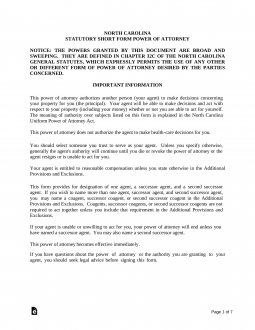Updated October 04, 2023
A North Carolina power of attorney form allows a person to act in someone else’s place and to carry out their financial, medical, or other personal affairs while they are alive. These forms are common for the elderly or anyone who may need assistance handling their daily responsibilities. The person giving power (“principal”) may select to have the forms be durable, making the form valid even if they should become incapacitated or unable to think for themselves.
By Type (9) |
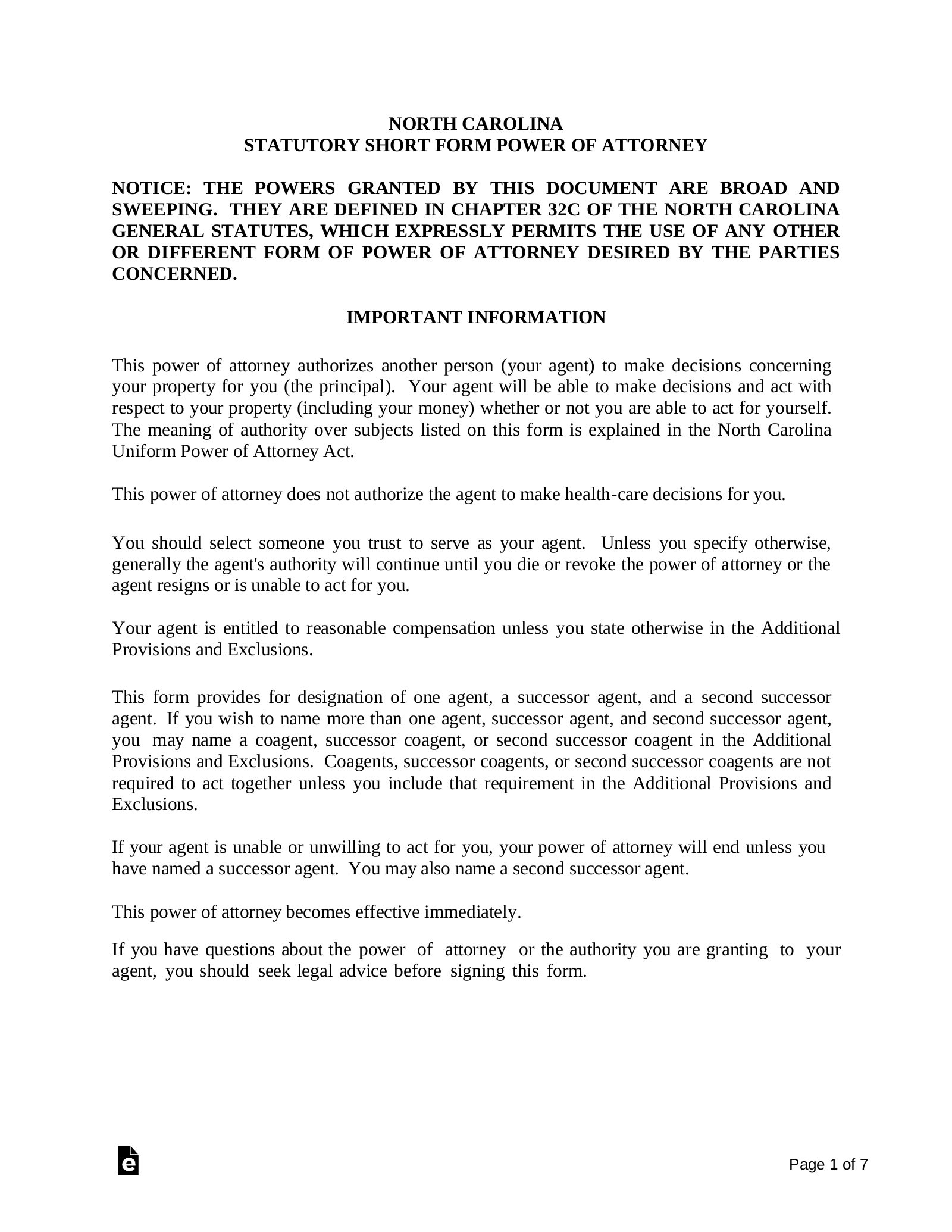 Durable (Statutory) Power of Attorney – Used to appoint someone to handle one’s financial affairs even after incapacitation. Durable (Statutory) Power of Attorney – Used to appoint someone to handle one’s financial affairs even after incapacitation.
Download: PDF, MS Word, OpenDocument Signing Requirements (§ 32C-1-105): Notary public. |
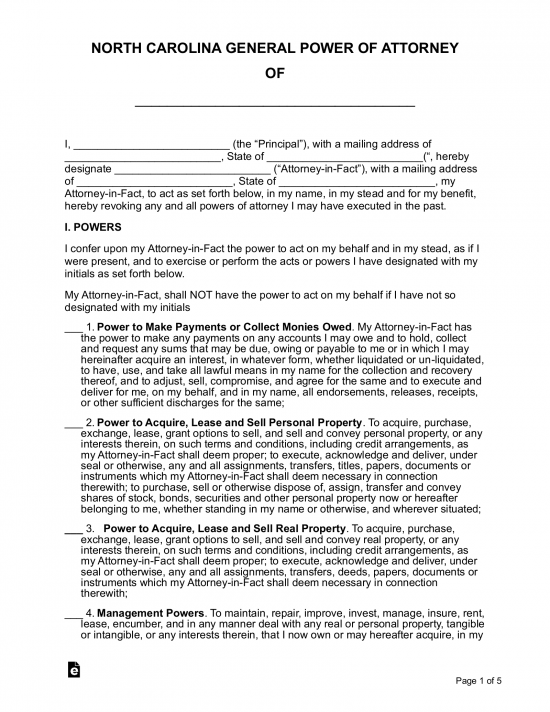 General (Financial) Power of Attorney – Used for general financial affairs, but it automatically terminates upon the principal’s incapacity. General (Financial) Power of Attorney – Used for general financial affairs, but it automatically terminates upon the principal’s incapacity.
Download: PDF, MS Word, OpenDocument Signing Requirements (§ 32C-1-105): Notary public. |
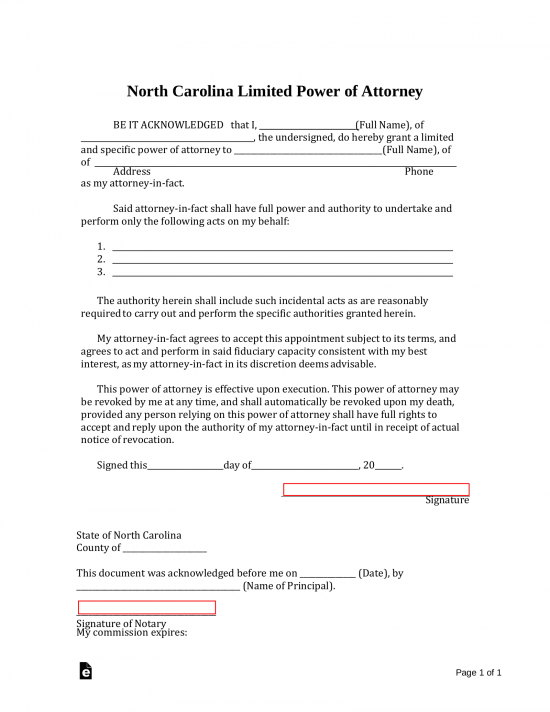 Limited Power of Attorney – Used typically in discrete transactions. For instance, you may anticipate being away when the closing of your vacation home is supposed to take place. Limited Power of Attorney – Used typically in discrete transactions. For instance, you may anticipate being away when the closing of your vacation home is supposed to take place.
Download: PDF, MS Word, OpenDocument Signing Requirements (§ 32C-1-105): Notary public. |
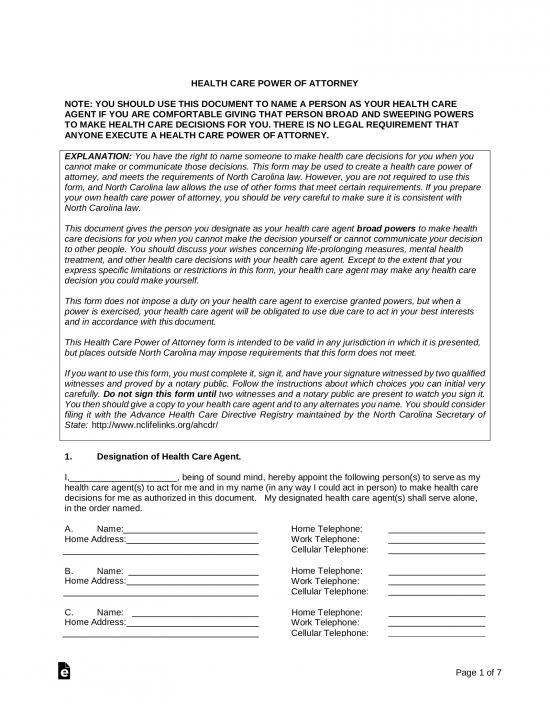 Medical Power of Attorney – This allows you to appoint another person to communicate with healthcare providers on your behalf when you’re unable to. Medical Power of Attorney – This allows you to appoint another person to communicate with healthcare providers on your behalf when you’re unable to.
Download: PDF, MS Word, OpenDocument Signing Requirements (§ 32A-16(3)): Two (2) witnesses or a notary public. |
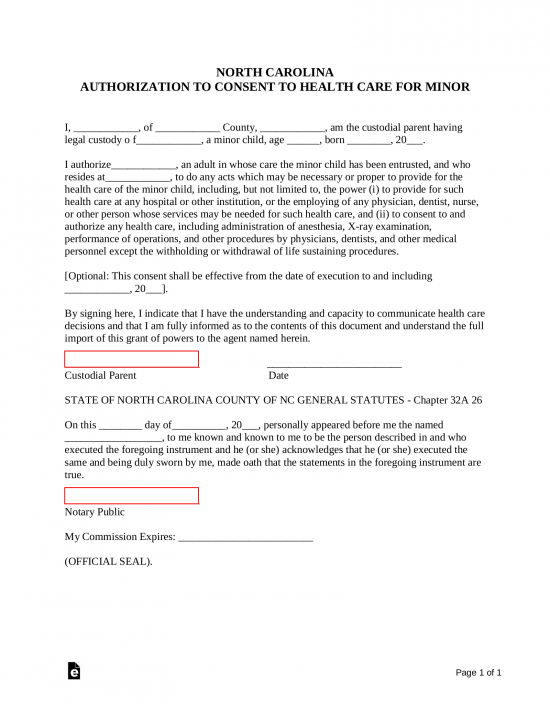 Minor (Child) Power of Attorney – This form allows a parent to give a caretaker the ability to act on the children’s behalf in the event of an emergency or school issue when the parents can’t be reached. Minor (Child) Power of Attorney – This form allows a parent to give a caretaker the ability to act on the children’s behalf in the event of an emergency or school issue when the parents can’t be reached.
Download: PDF, MS Word, OpenDocument Signing Requirements (§ 32A-29): Notary public. |
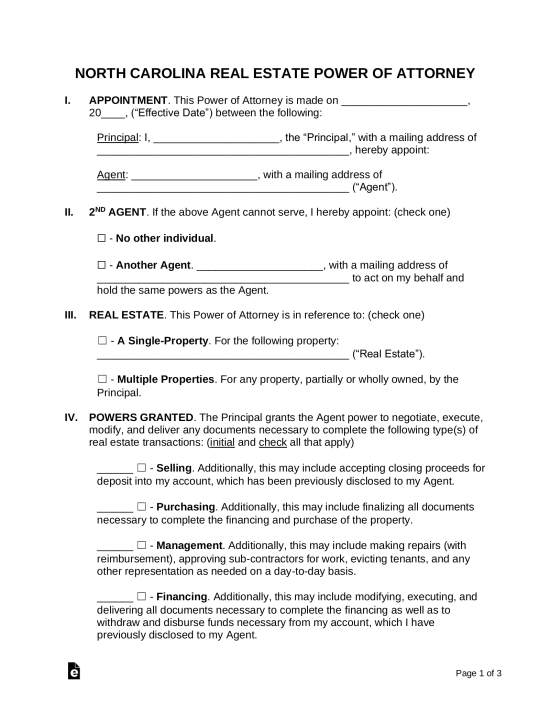 Real Estate Power of Attorney – Allows an individual to have the ability of the landlord to sell, negotiate, and close on a piece of real property on another’s behalf. Real Estate Power of Attorney – Allows an individual to have the ability of the landlord to sell, negotiate, and close on a piece of real property on another’s behalf.
Download: PDF Signing Requirements (§ 32C-3-303): Notary public. |
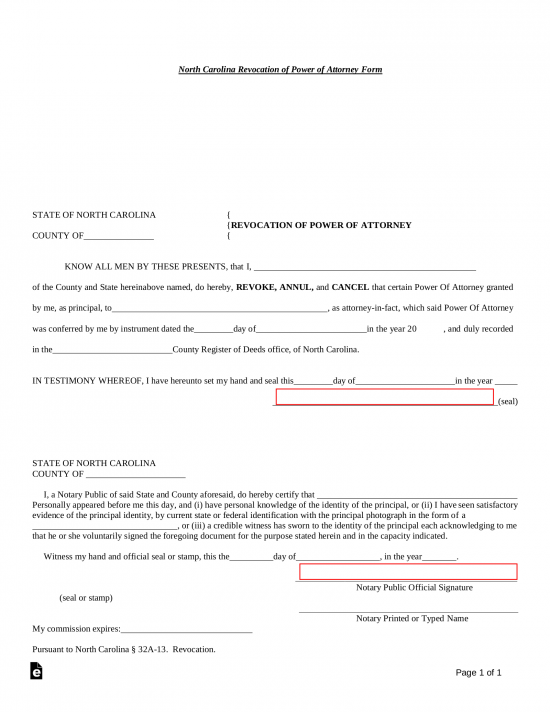 Revocation of Power of Attorney – Used when revoking a POA. When revoking a POA, it is important to use this form and inform all relevant parties. Revocation of Power of Attorney – Used when revoking a POA. When revoking a POA, it is important to use this form and inform all relevant parties.
Download: PDF, MS Word, OpenDocument Signing Requirements (§ 32C-1-110(G)(2)(a)): Notary public. |
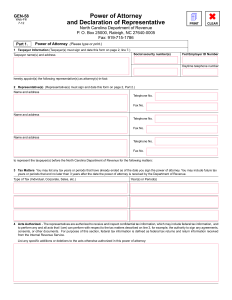 Tax Power of Attorney (Form GEN-58) – Allows you to appoint another person, usually a tax professional, to represent your interests in front of the tax authority in North Carolina. Tax Power of Attorney (Form GEN-58) – Allows you to appoint another person, usually a tax professional, to represent your interests in front of the tax authority in North Carolina.
Download: PDF Signing Requirements: Principal and representative. |
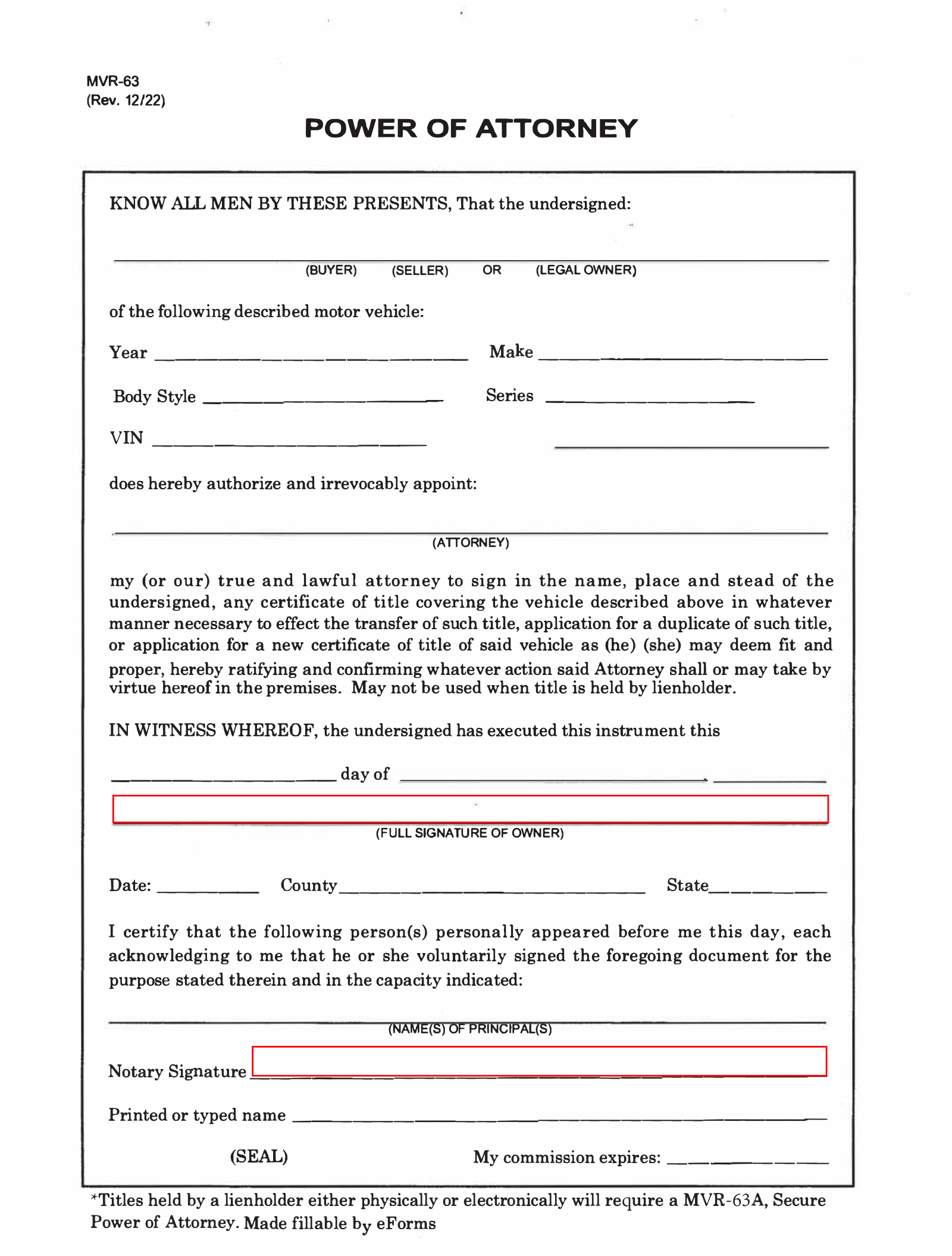 Vehicle Power of Attorney (Form MVR-63) – This is also a limited type of POA that allows you to appoint someone to act for you with the division of motor vehicles in North Carolina. Vehicle Power of Attorney (Form MVR-63) – This is also a limited type of POA that allows you to appoint someone to act for you with the division of motor vehicles in North Carolina.
Download: PDF Signing Requirements: Notary public. |

